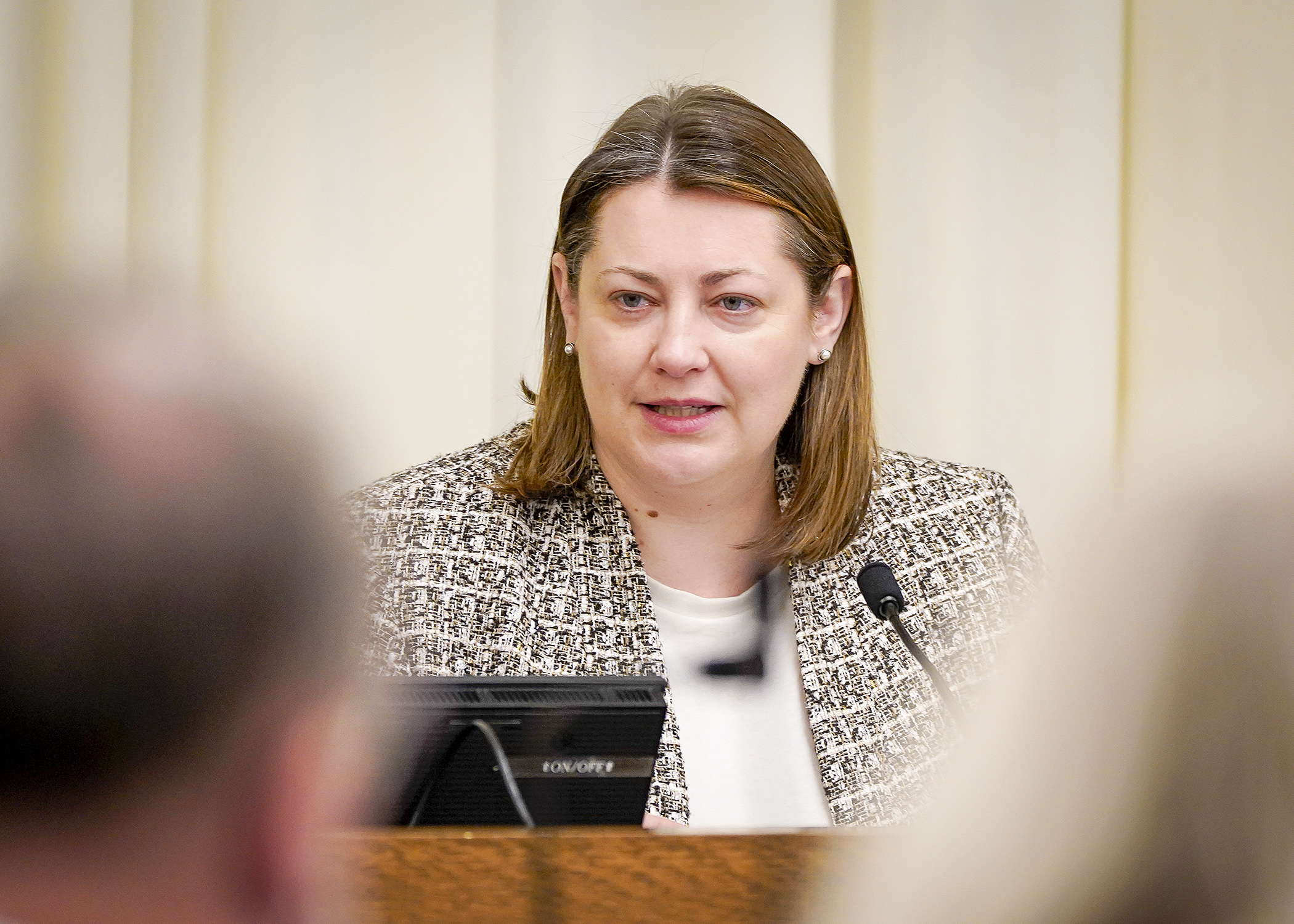House members voice concern over fraud investigators’ move to BCA

Legislators have bipartisan concern that the Commerce Fraud Bureau’s mission to root out white-collar crime will be diluted with its move to the Bureau of Criminal Apprehension.
Plenty of anger was expressed Thursday by the House Commerce Finance and Policy Committee about Gov. Tim Walz unilaterally making the change in January via executive order as part of a legislative package intended to address fraud after recent high profile cases.
Rep. Kaohly Vang Her (DFL-St. Paul) said it was politically the wrong move that will hurt relationships.
The change should have been made with legislation because the unit’s existence protects Minnesota consumers, said Rep. Tim O'Driscoll (R-Sartell).
“The consumer, when they pay their annual premium, is expecting that those insurance claims and frauds are going to be tracked, are going to be investigated, and they’re not going to be compromised by potentially mission creep in other areas,” O’Driscoll said.
Public Safety Commissioner Bob Jacobson, whose department houses the BCA, said he is committed to ensuring this change is done right and fraud investigations continue.
“If anybody is going to lose their job over this or is responsible ultimately for this, it’s me,” he said.
The Commerce Fraud Bureau was created at the Department of Commerce in 2004. It investigates cybercrime, schemes targeting older Minnesotans and cryptocurrency crimes. But its big-ticket item is insurance fraud. The unit is statutorily required to spend 70% of its time on insurance fraud and is partially funded by assessments on insurance companies.
Insurance fraud impacts Minnesotans in the form of higher insurance premiums and had an economic impact of $35 million last year, said Commerce Commissioner Grace Arnold. Most of the unit’s tips come from the insurance companies, and as of December, its caseload included 170 active investigations and 240 referrals.
Aaron Cocking, president and CEO of the Insurance Federation of Minnesota, said the unit was specifically created in the Department of Commerce because it regulates the insurance industry. Insurance companies are concerned this unit’s focus on insurance fraud will cease at the BCA, he added.
The focus of the BCA’s financial crimes section, with which the commerce bureau has been merged, includes crimes involving unemployment insurance, Social Security disability insurance, public assistance, identity theft, embezzlement, forgery and bank fraud.
“The fraud unit for insurance is going to be the poor stepcousin in ‘CSI: Miami.’ Why are we doing this? … It’s a knee-jerk reaction on all the fraud issues plaguing the state, so the governor can say, ‘I did something,’” said Rep. Ben Davis (R-Merrifield).
Rep. Zack Stephenson (DFL-Coon Rapids), who works as a prosecutor, said white-collar investigations are difficult for local law enforcement because they can be complex, multijurisdictional and take a long time.
The Legislature expanded the Commerce Fraud Bureau’s power and staff in 2022, but he too is concerned that fraud investigators will be diverted to work on the BCA’s drug and violent crime cases.
BCA Superintendent Drew Evans said he expects legislative proposals will be forthcoming to create guardrails ensuring the unit’s focus remains on fraud.
Related Articles
Search Session Daily
Advanced Search OptionsPriority Dailies
Speaker Emerita Melissa Hortman, husband killed in attack
By HPIS Staff House Speaker Emerita Melissa Hortman (DFL-Brooklyn Park) and her husband, Mark, were fatally shot in their home early Saturday morning.
Gov. Tim Walz announced the news dur...
House Speaker Emerita Melissa Hortman (DFL-Brooklyn Park) and her husband, Mark, were fatally shot in their home early Saturday morning.
Gov. Tim Walz announced the news dur...
Lawmakers deliver budget bills to governor's desk in one-day special session
By Mike Cook About that talk of needing all 21 hours left in a legislative day to complete a special session?
House members were more than up to the challenge Monday. Beginning at 10 a.m...
About that talk of needing all 21 hours left in a legislative day to complete a special session?
House members were more than up to the challenge Monday. Beginning at 10 a.m...